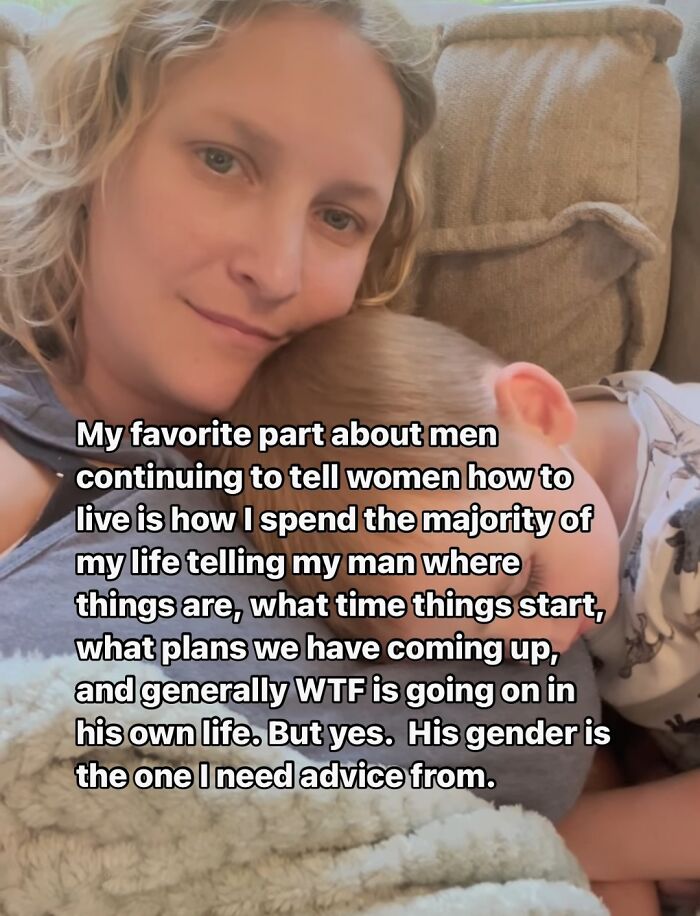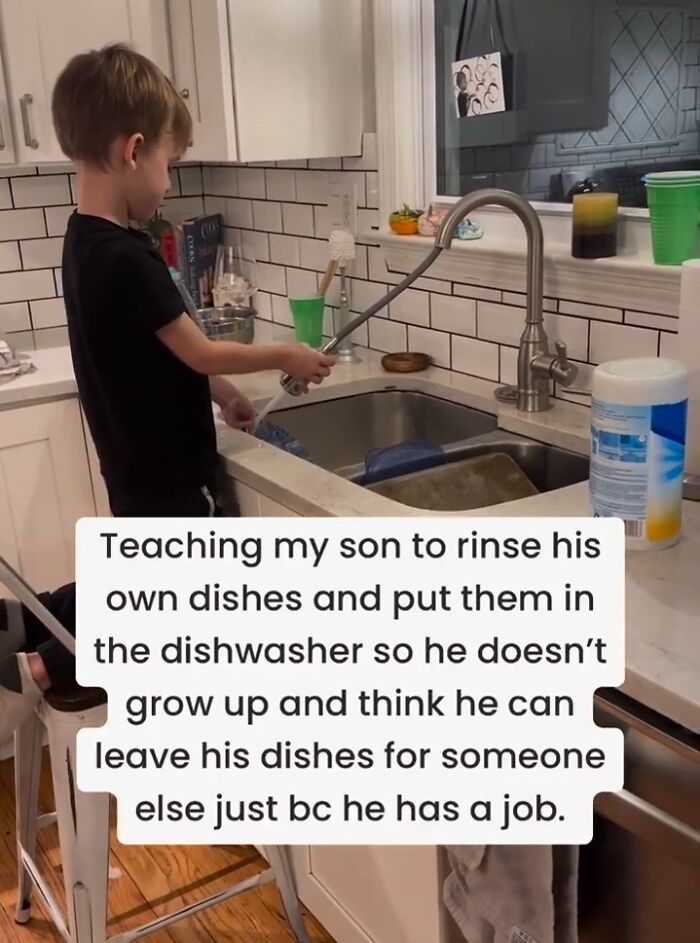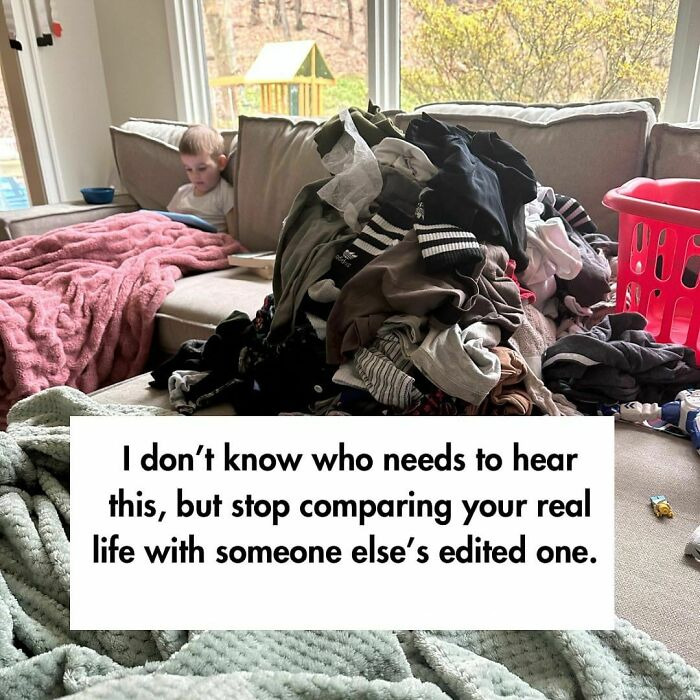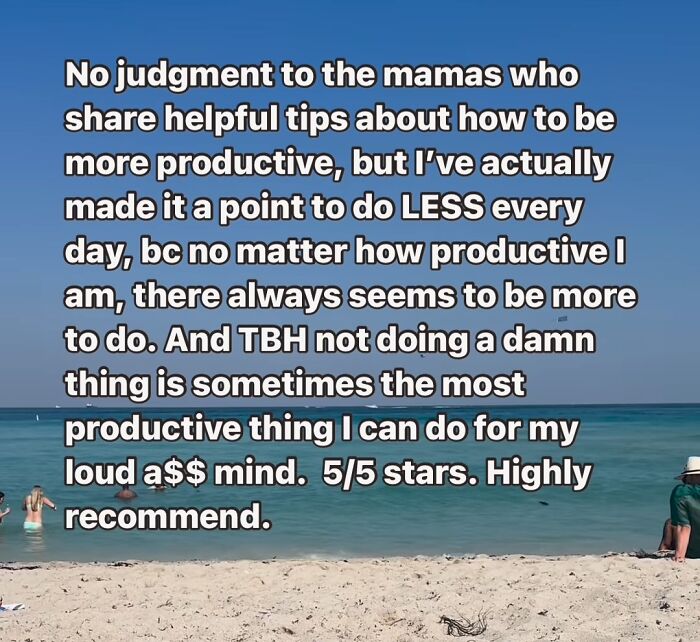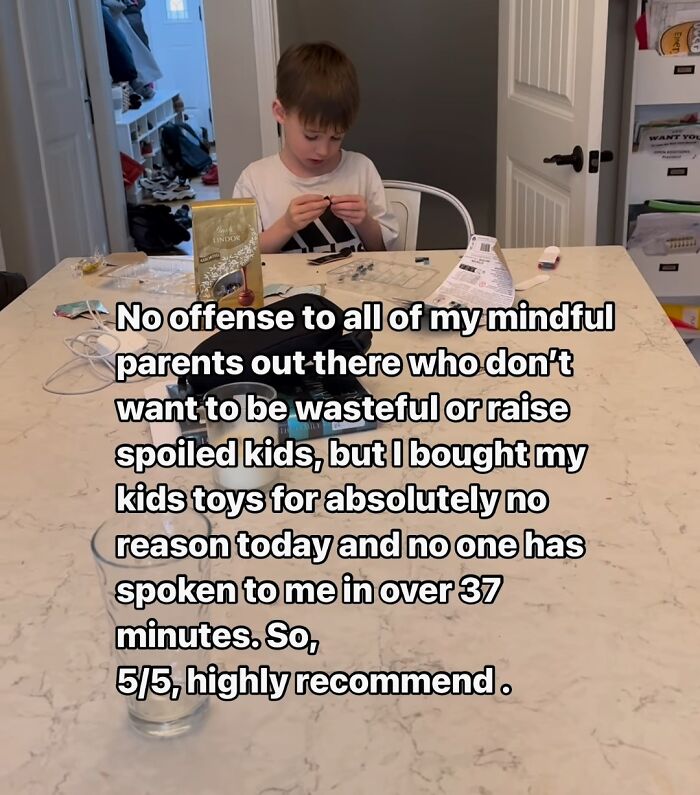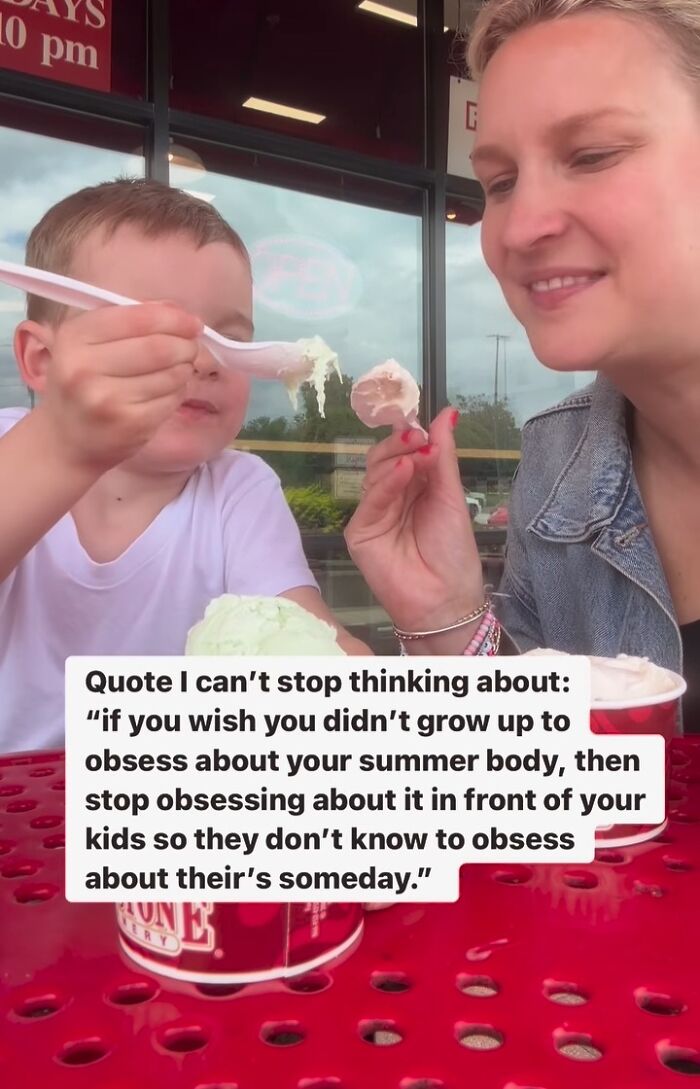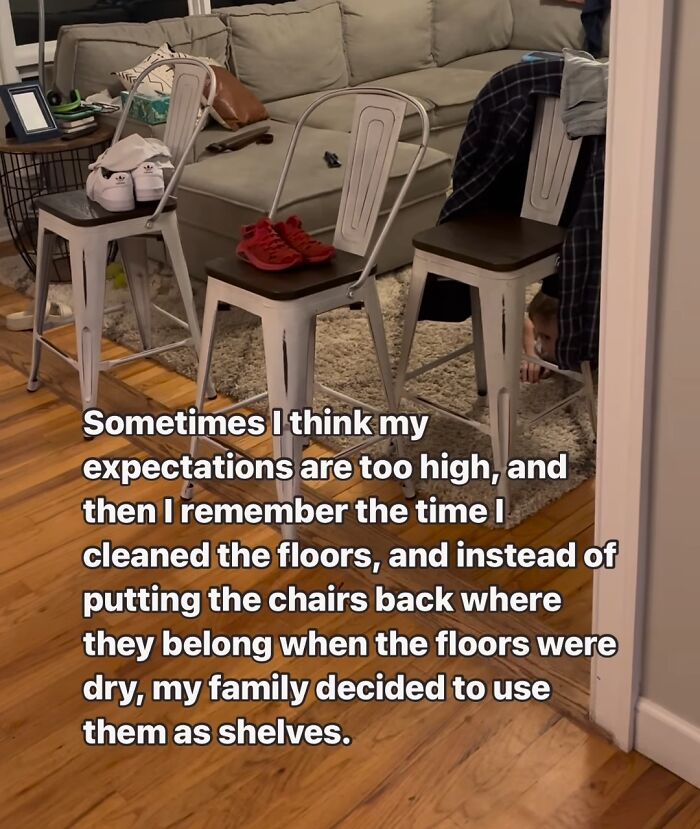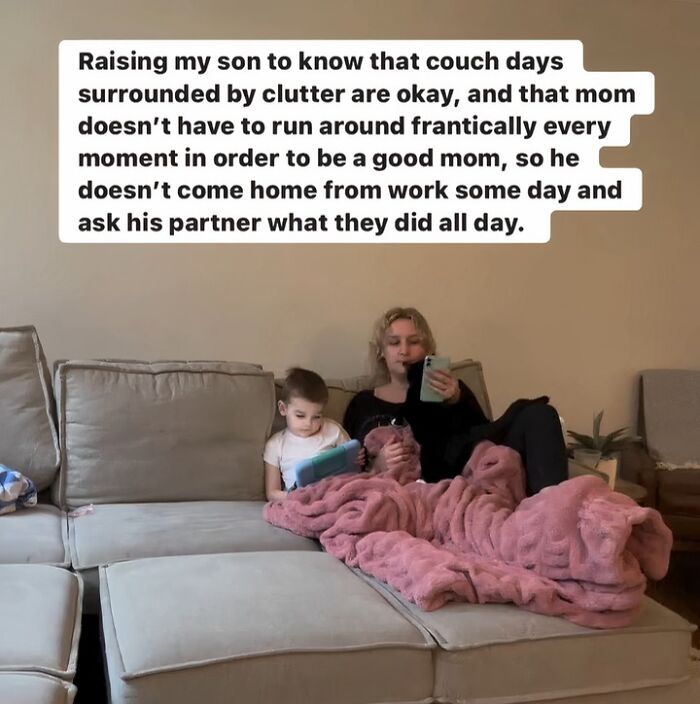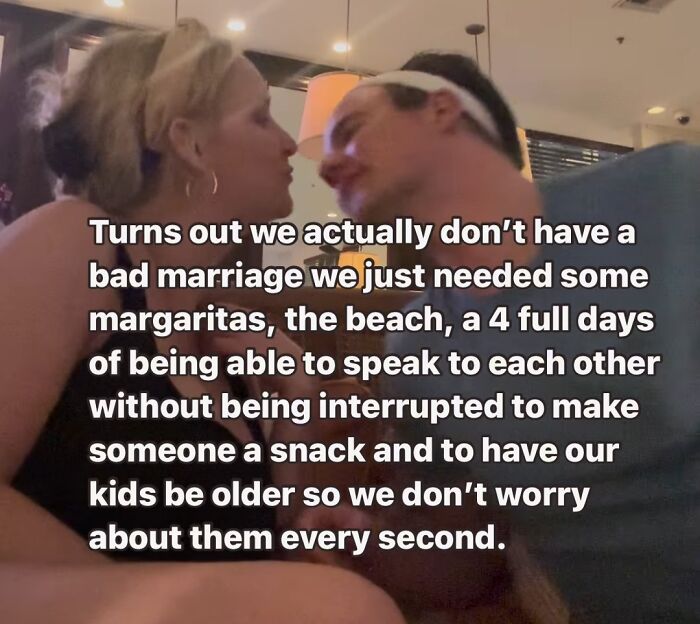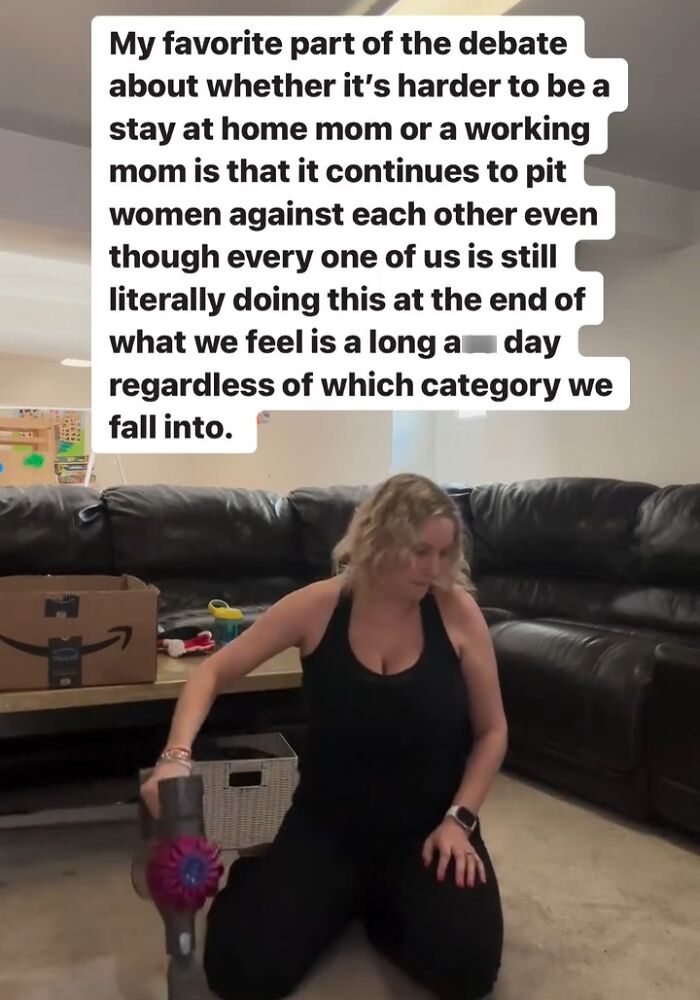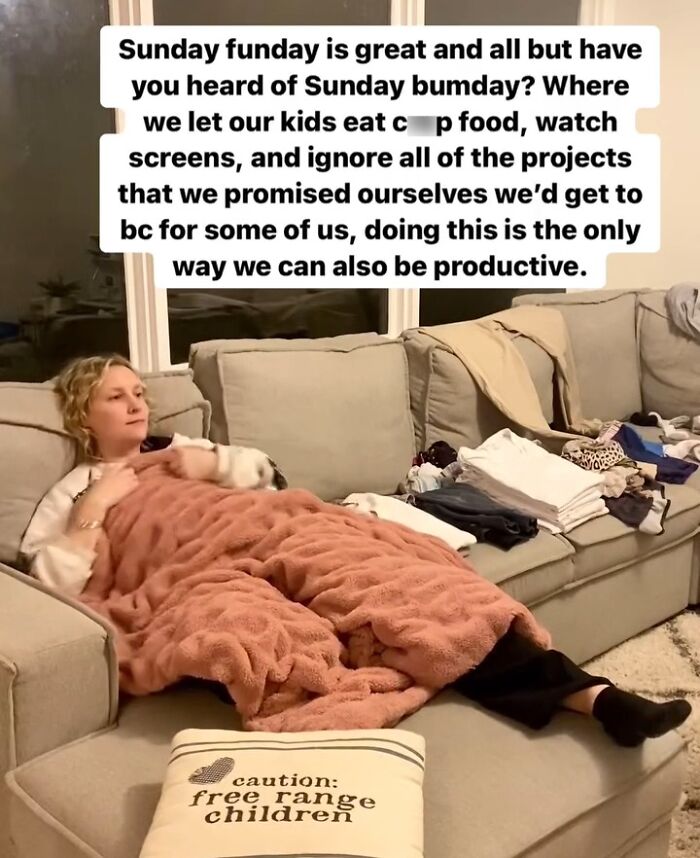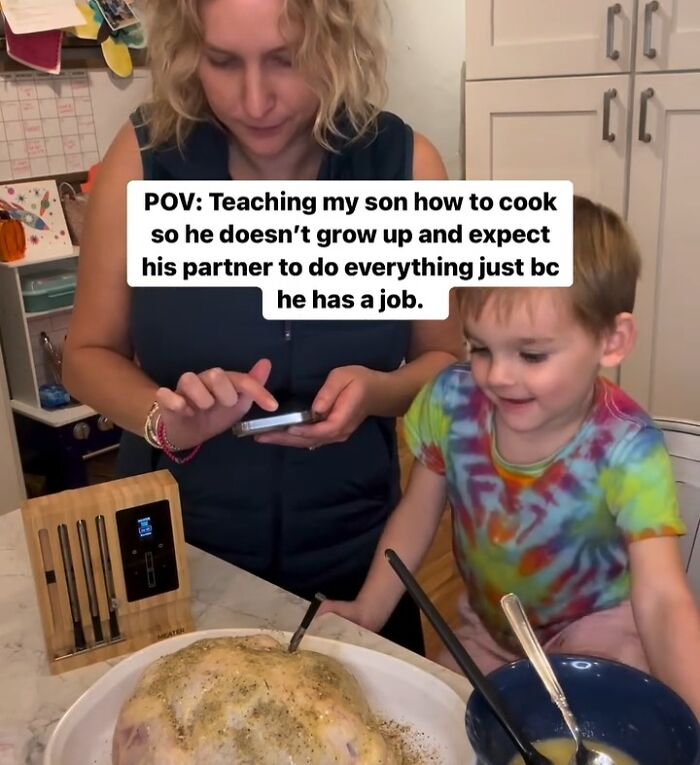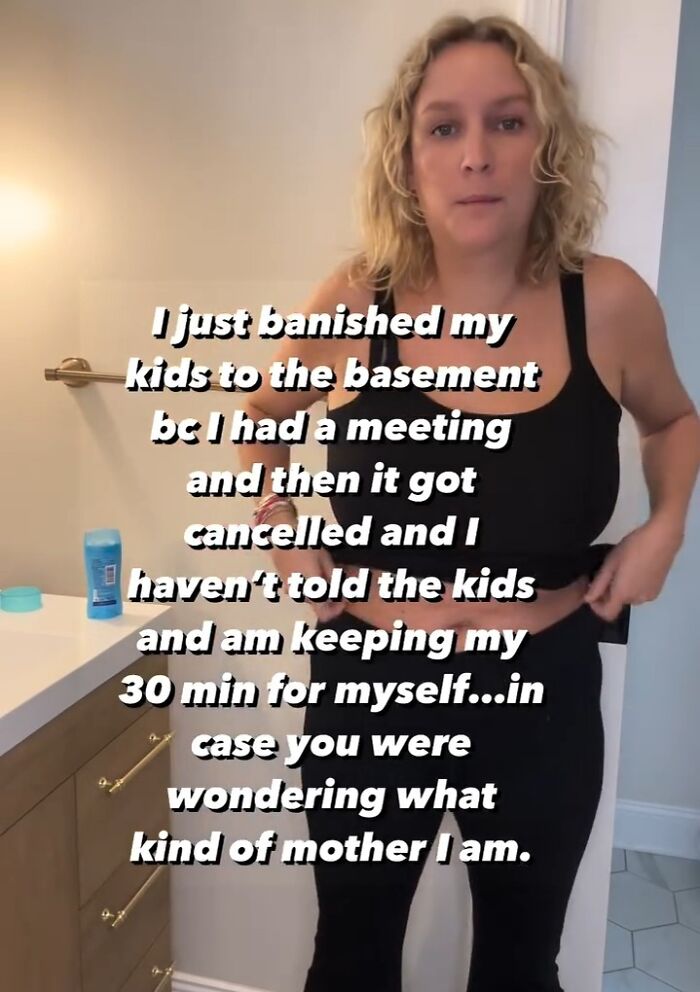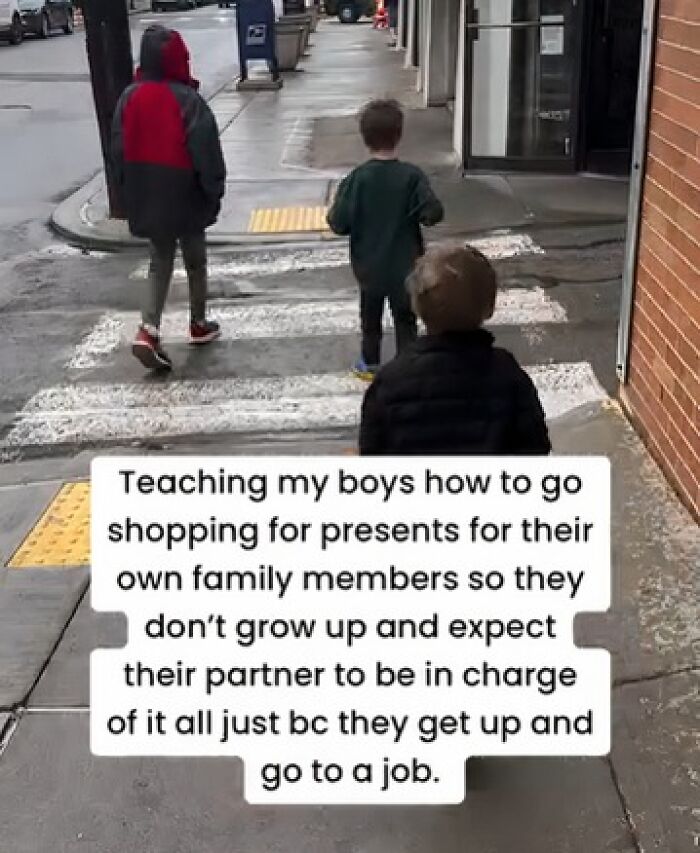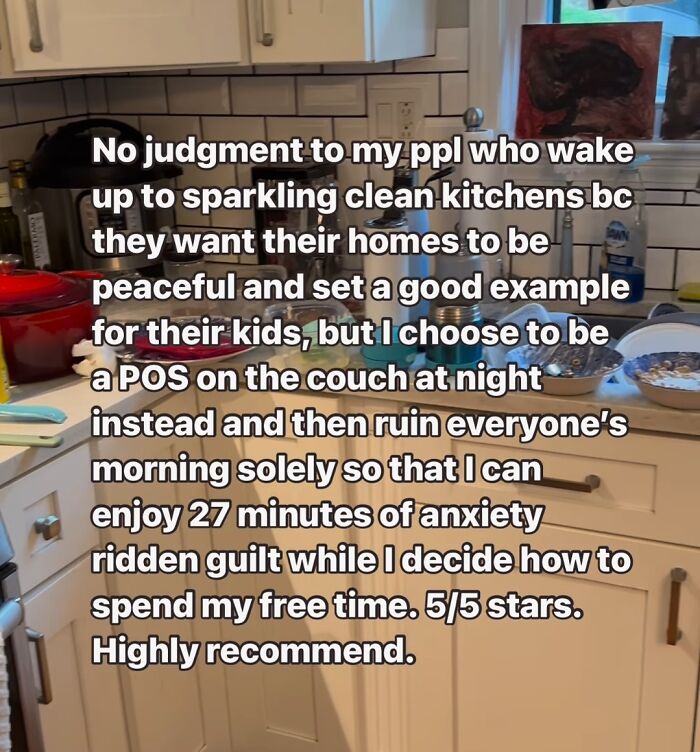“There was one other account, @momsbehavingbadly, that I resonated with. So, I thought maybe I could create an account that is relatable to people like me? Maybe I’ll make some friends. Or at least have it be an outlet for venting,” she opened up about the history of her super popular social media project. “While these are helpful, they can have a negative impact when all we see is all the ways we’re probably messing our children up because we said something like, ‘If you don’t come on, we’re leaving the park without you!’” the mom pointed out that the expectations set on social media are unrealistic and impractical. “Create one time each day that is cherishable, even if it’s just the time you snuggle up and watch a movie. Cherish that hour or 20 minutes, and it’ll help you get through the harder ones. And it’ll be the time your kids remember most, too.” There are over 5 billion people on social media, according to Statista. With so many people spending a large chunk of their time online, it only makes sense that they’re at least partly influenced by the posts and videos they see. When we’re constantly bombarded with images and clips of someone’s idyllic family life, it can feel like we’re failing as parents if our experiences don’t match theirs. We want to fit in. We want to be respected. We want to avoid being seen as failures. That’s why some people try to follow in these influencers’ footsteps without considering whether these parenting trends even benefit them. In short, you should not feel like parenting is a competition. You do not have to sign your toddler up to four different preschool extracurriculars to be a good parent. Similarly, it’s okay if your teenager doesn’t get into high-flying internships to prepare them for college admissions. And you’re allowed to heat up a frozen dish from time to time: crafting three gourmet, extremely nutritious meals every single day is exhausting. Aiming only for affluence and trying to ‘keep up with the Joneses’ (or probably the Kardashians these days) is all about ego, not good parenting. Play some games. Build some stuff out of Lego. Read some books. Talk about how cool science is. Go feed your local ducks in the park. Kick or throw a ball around. Or both! Go make some new friends or visit your relatives. Teach your kids some cool skills or show them the hobbies you care about. Think back to your own childhood. The odds are that what pops into your head are the moments when you connected with your family doing something fun. The specific activity isn’t as important as the fact that it’s done together. The digital creator has a massive presence on social media. She has a jaw-dropping 409k followers on Instagram, as well as 15.5k fans on TikTok. Authoritative parenting, one of four main parenting styles, is the most balanced of the bunch. It focuses on creating a balance between firm boundaries and unconditional love, which creates an environment where kids most often thrive. Authoritative parents do their best to communicate very clearly, openly, and with calm assertiveness. They establish guidelines, so their kids always know what acceptable behavior looks like and what’s inappropriate. On top of that, these parents also support their children unconditionally and celebrate their individuality. It’s a blend of structure, transparency, and good old-fashioned support. Their kids, in turn, grow to be more resilient, develop better self-esteem, and have better all-around emotional well-being. This doesn’t do the kids much good because when they grow up, they tend to have problems with self-esteem and struggle dealing with authority figures. Meanwhile, uninvolved parenting happens when the caregivers are completely detached from what their children do. They spend barely any time with them, effectively leaving them to raise themselves. Follow Bored Panda on Google News! Follow us on Flipboard.com/@boredpanda! Please use high-res photos without watermarks Ooops! Your image is too large, maximum file size is 8 MB.



